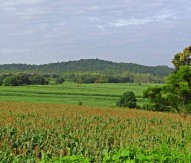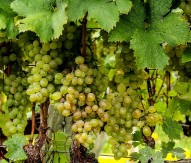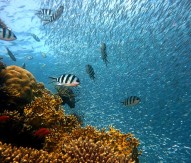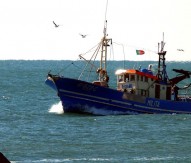
Archaeologists and chemists trace ancient British diets
Studies of old rubbish dumps and dirty dishes have revealed that ancient Britons gave up their passion for fish to begin a love affair with milk. A large scale investigation by the University of Bristol and Cardiff University into British archaeological sites dating from around 4,600 BC to 1,400 AD has examined millions of fragments of bone and analysed over 1,000 cooking pots.
The team developed new techniques in an effort to identify fish oils in the pots. They showed that more than 99% of the earliest farmer’s cooking pots lacked sea food residues.
Other clues to diets 6,000 years ago lie within human bones themselves, explored by the Cardiff University group led by Dr Jacqui Mulville. The sea passes on a unique chemical signature to the skeletons of those eating seafood. While the early fishermen possessed this signature, it was lacking in the later farmers.
Lead author of the study, Dr Lucy Cramp said: “The absence of lipid residues of marine foods in hundreds of cooking pots is really significant. It certainly stacks up with the skeletal isotope evidence to provide a clear picture that seafood was of little importance in the diets of the Neolithic farmers of the region.”
The Bristol team used a compound-specific carbon isotope technique they developed to identify the actual fats preserved in the cooking pots, showing that dairy products dominated the menu right across Britain and Ireland as soon as cattle and sheep arrived.
The ability to milk animals was a revolution in food production as, for the first time, humans did not have to kill animals to obtain food. Milking stock required a high level of skill and knowledge.
The study was funded by the Natural Environmental Research Council with research on the Irish material funded by Marie Curie Actions as part of FP7. It was a collaboration between the Universities of Bristol and Cardiff, the National Museum of Scotland and a number of other regional museums.






